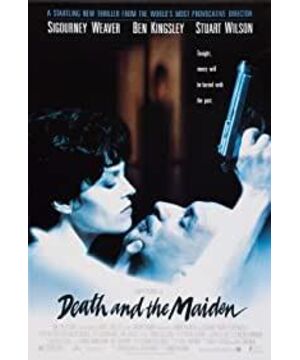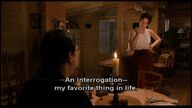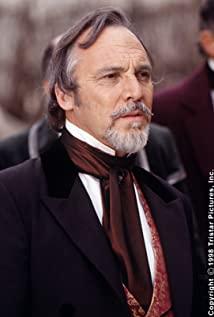Such a setting will undoubtedly collide with different sparks. This is also the original intention of my watching this movie. When procedural justice cannot be guaranteed, can substantive justice be achieved? In other words, in order to pursue substantive justice, can procedural justice be abandoned? Wife's trial, who identified the doctor's murderer with just the doctor's voice and a tape, is a no-brainer for the modern judicial process. Why did she do it, just because the doctor hurt her?
The doctor was, in a way, an embodiment of the power of the state apparatus of that era: hypocritical, vicious, and inhumane. Wives tortured by doctors are like innocent people overpowered by power. In the eyes of his wife, the doctor, like the secret police, is the cancer of that era. The wife's hatred of the doctor is also the hatred of that era. This is why the wife is furious about her husband's appointment. What she wants is the doctor's confession and the confession of that era, and modern justice has no way to give her such an account (the beginning of the film can be drawn from the conversation between the wife and her husband) , she can only find the justice in her heart. But is this the only way? Could this be the reason for this trial? If the doctor is innocent, who will be responsible for him? There is a deep sense of sadness and powerlessness after watching the movie. Immoral judgment, unrequited justice.
ps: The script and actors are very good, the best movie I have seen recently (I have seen the director's killing before, or the heart water)
View more about Death and the Maiden reviews











